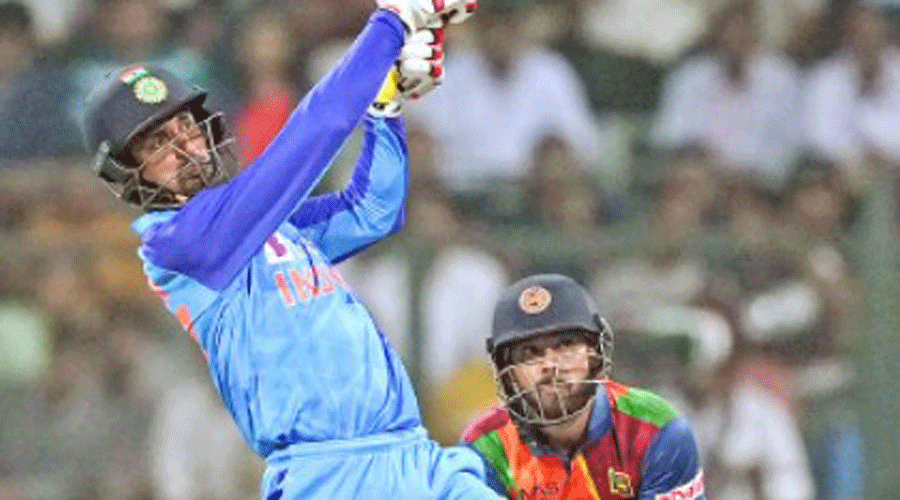India began 2023 on a winning note, as they edged past Sri Lanka by two runs in the first T20I, at the Wankhede in Mumbai on Tuesday.
Chasing a 163-run target, Sri Lanka needed 13 runs off the final over, bowled by Axar Patel. The left-arm spinner had to bowl the deciding over as captain Hardik Pandya couldn’t bring himself on due to cramps.
Chamika Karunaratne raised Sri Lanka’s hopes, hitting a six off the third delivery.
But Axar had the last laugh as the Sri Lankan bungled, playing two dot balls in that final over, thinking they would be called wides.
Those two dot balls turned out to be priceless for India, as Sri Lanka were all out for 160.
India’s Powerplay struggles continued in spite of the in-form Ishan Kishan’s fireworks in the first over of the game which yielded 17. From 41/2 after six overs, India, put into bat by Sri Lanka, had lost half their side with only 94 in 14.1 overs.
However, braving a difficult situation, Deepak Hooda (41 not out off 23 balls) and Axar Patel (31 not out off 20 balls) forged an unbroken 68 off just 35 balls that lifted the team total to 162/5.
Thereafter, making use of the little bit of assistance on offer from the pitch, India’s quicks did a fine job to make Sri Lanka’s chase difficult.
Shivam Mavi (4/22 off 4 overs), one of the debutants alongside Shubman Gill, gave India the early breakthrough, removing opener Pathum Nissanka and No.3 Dhananjaya de Silva before Umran Malik dismissed Charith Asalanka and picked up rival captain Dasun Shanaka (45) at a critical phase. Harshal Patel accounted for Kusal Mendis and Bhanuka Rajapaksa to peg the visitors back further.
Mavi was equally effective in his second spell, breaking the counter-attacking sixth-wicket stand between Shanaka and Hasaranga. He got Hasaranga out with a clever alteration of length, which certainly was a turning point in the game.
Earlier, spinners Maheesh Theekshana, De Silva and Hasaranga combined well to restrict India. Kishan and skipper Pandya (29) couldn’t convert their starts, but Hooda and Axar stood up just when India needed them to.











